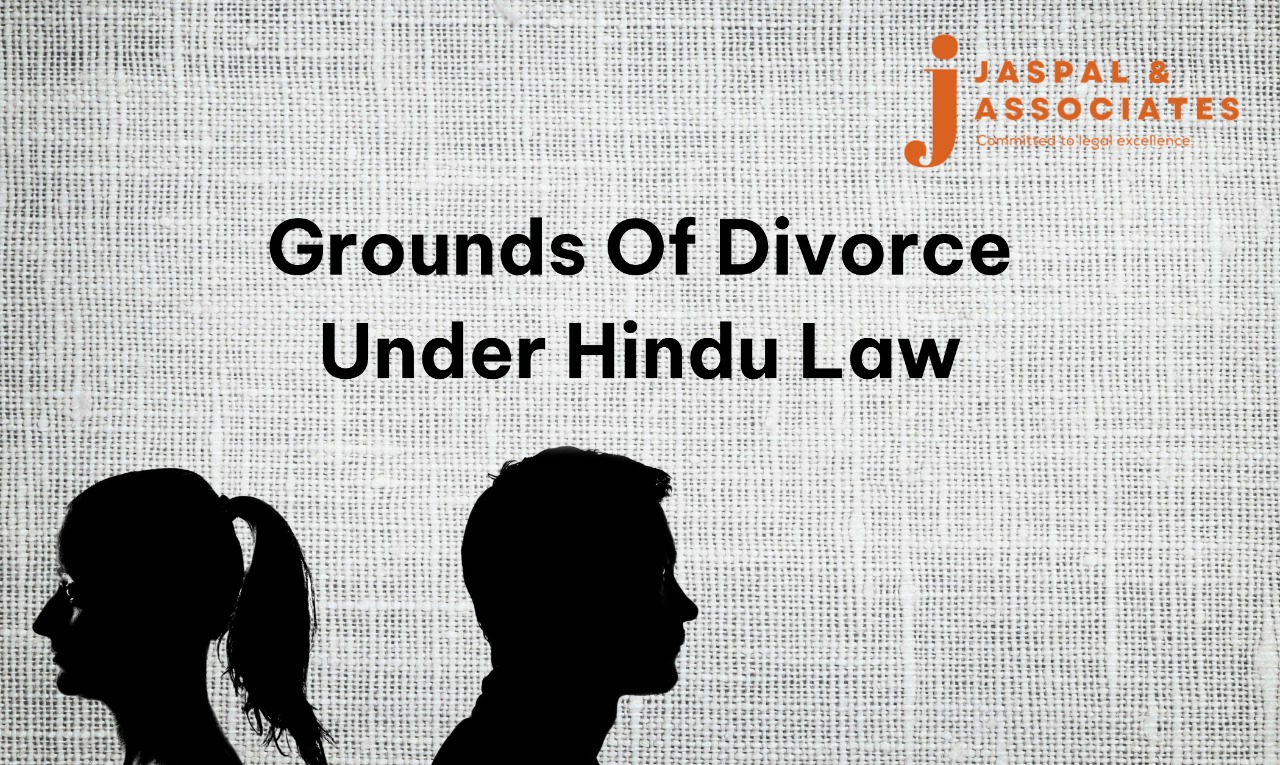
By Jaspal And Associates
2022/10/12
Grounds Of Divorce Under Hindu Law
Divorce among Hindus was not recognized until the Hindu marriage Act, 1955. Manu says that a marriage can end only with the death of one of the spouses. Any divorce taken otherwise was not only frowned upon but deeply stigmatized and prejudiced. Divorce was considered as a sin. British India only had the Divorce Act, 1869 which provided for the divorce procedure in India for people professing the religion of Christianity. Other than that there was no enactment for the divorce process in India. It was only in 1955 that parliament passed the Hindu Marriage Act 1955 and provision related to the concept of divorce was introduced in the act. Divorce, the said term has not been defined in the act but it simply means, dissolution of marriage. Various grounds of divorce are mentioned under Section 13 of the Hindu Marriage Act.
Theories of Divorce
Valid Grounds For Divorce
People often think that getting divorce or separation from their spouse is an easy task. Such people are totally unaware of the effort which divorce advocates need to put to convince the courts in divorce cases. It may be a cake walk if parties are mutually seeking divorce or judicial separation. However, for contested cases where one spouse wants to end the relation and the other wishes to continue, things turn troublesome. Given below are the grounds of judicial separation under Hindu law which also turn out to be divorce grounds:
Adultery: Adultery means voluntary sexual intercourse beyond the capacity of the lawful wedlock. It has been added as a ground for divorce. If the husband or the wife had sexual intercourse with a person other than his/her spouse, it is considered a ground for divorce. The Shastri Hindu law also condemned the act of adultery. However, even a single act of adultery can become a ground for divorce. The act of adultery is no more an offence.
Cruelty: The concept of cruelty has evolved and includes both mental and physical cruelty. It is the most difficult thing to decide a parameter for cruelty. So, it is to be decided on the circumstances and facts of each case. Thus, cruelty, whether physical or mental, is a ground for divorce.
Desertion: Desertion means rejection of all kinds of matrimonial obligations and rights. If the husband or the wife, without any reasonable cause or justification and the consent of the spouse, abandons her/his society or cohabitation for a term of two years in continuation, it becomes a valid ground for divorce under Section 13 (1) of the Act. Conversion: When any of the parties to a marriage has ceased to be a Hindu by conversion to any religion other than Hindu, a suit for divorce can be granted by the Court.
Insanity: Insanity is a reasonable ground for divorce under the Hindu Marriage Act,1995. If a person is incurably insane or intermittently insane, it is difficult for the other spouse to live the rest of the life with them; the aggrieved can seek divorce by making the insanity of the person ground for divorce.
Venereal Diseases: Venereal diseases are diseases that are communicable by nature. If any of the spouses is suffering from any venereal disease, it becomes a valid reason for divorce. However, it is immaterial whether the disease has been communicated to the other spouse. It is sufficient that one of the spouses is diagnosed with such a disease.
Presumed Death: If the husband or the wife is unheard of as being alive, for a period of a minimum of seven years, to such person(s) to whom he is supposed to be heard of, is presumed to be dead, and the Court can pass a decree of divorce. However, the decree remains to be effective even if the person against whom it has been passed appears to be alive.
Renunciation: Under Hindu law, renunciation of the world is considered to be a valid ground for divorce. In the Hindu religion, renouncing the world is a holy nation. The spouse can seek a divorce because the other spouse has renounced the world to enter religious gratification. Thus, renunciation is a valid ground for divorce. The grounds available only to the wife under Section 13 (2) can be elucidated as:
Are you looking for legal expertise for your divorce matters? Contact Jaspal and Associates for a consultation and the best of guidance. We have a robust team with diverse experience in family law matters.